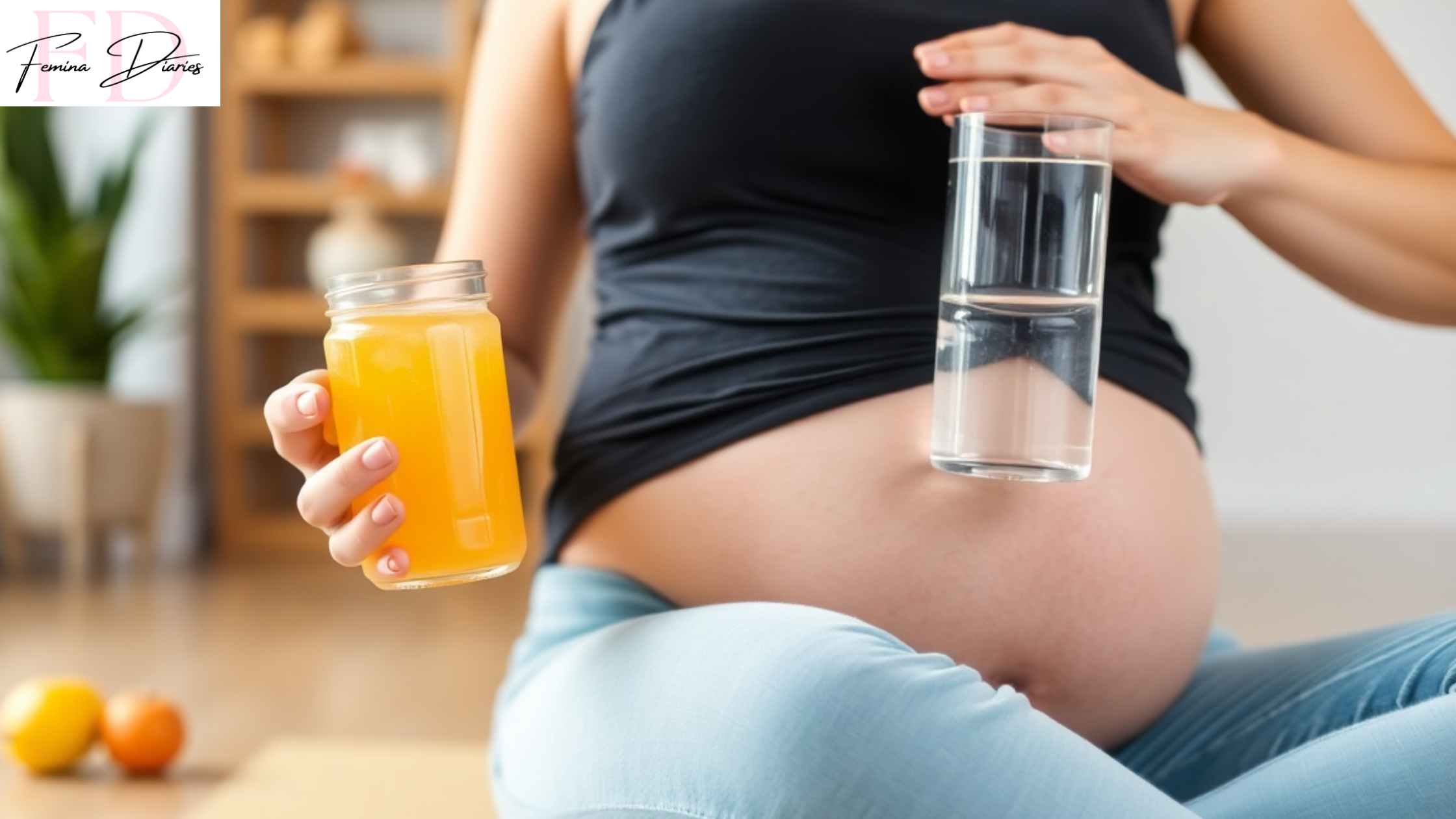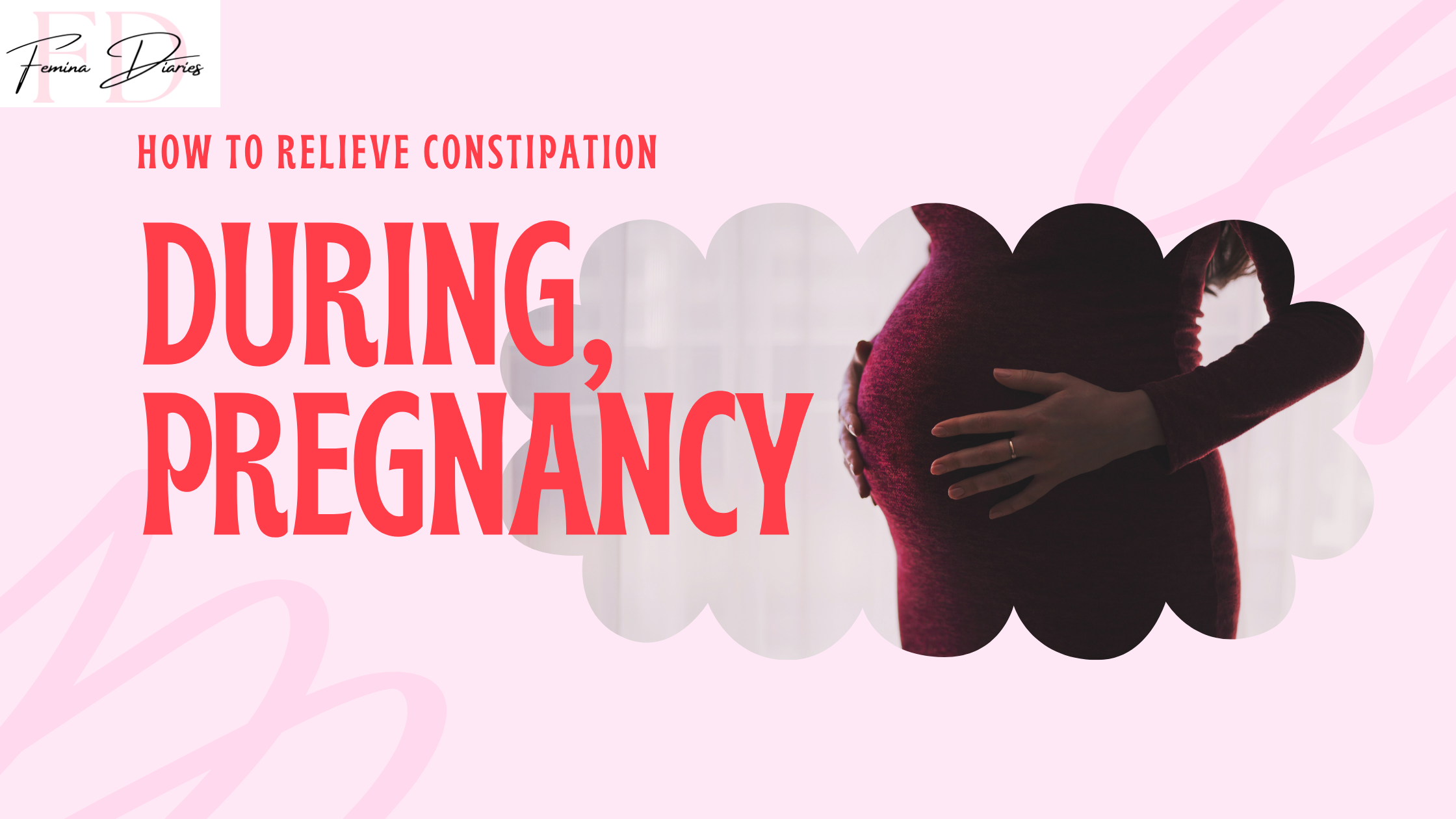Constipation during pregnancy is a common issue, often leaving many women searching for solutions to this uncomfortable problem. Hormonal changes, dietary shifts, and physical factors all contribute to this condition. Fortunately, understanding how to relieve constipation during pregnancy can make a world of difference in ensuring comfort and overall health. This guide provides in-depth information, practical tips, and safe remedies tailored to expectant mothers.
Why Does Constipation Occur During Pregnancy?
Understanding the root causes of constipation during pregnancy is essential for finding effective solutions. Here’s why it happens:
Hormonal Changes
- During pregnancy, increased progesterone levels relax the muscles in your digestive tract, slowing down bowel movements.
- Progesterone also affects the absorption of water in the intestines, making stools harder and more difficult to pass.
Dietary Adjustments
- Prenatal vitamins rich in iron, while essential, can sometimes cause or worsen constipation by slowing bowel movement.
- Changes in eating habits, like increased cravings for low-fiber foods, can also contribute.
Physical Pressure
- Fatigue or discomfort may lead to reduced movement, which slows digestion and contributes to constipation.
Dehydration
- Increased fluid needs during pregnancy can sometimes lead to insufficient hydration, making stools harder.
Recognizing Symptoms of Constipation During Pregnancy
Before exploring how to relieve constipation during pregnancy, it’s important to identify the symptoms. These include:
- Infrequent bowel movements (less than three times per week)
- Hard, dry stools that are difficult to pass
- Straining during bowel movements
- A sensation of incomplete evacuation
- Bloating or abdominal discomfort
- Gas or a feeling of fullness in the lower abdomen

How to Relieve Constipation During Pregnancy Naturally
Pregnant women often prefer natural remedies to ensure the safety of their baby. Here are some proven methods:
1. Boost Fiber Intake
Fiber plays a critical role in maintaining healthy digestion. Aim for 25-30 grams of fiber daily by including:
- Fruits: Apples, pears, berries, oranges, and bananas
- Vegetables: Spinach, carrots, broccoli, sweet potatoes, and zucchini
- Whole Grains: Oats, quinoa, whole wheat bread, and brown rice
- Legumes: Lentils, chickpeas, black beans, and kidney beans
Soluble fiber found in oats and apples helps retain water in the stools, making them softer, while insoluble fiber in whole grains and vegetables helps move stools through the intestines more efficiently.
2. Stay Well-Hydrated
Water helps soften stools and supports overall digestion. Here’s how to stay hydrated:
- Drink 8-10 glasses of water daily.
- Include herbal teas, clear soups, and fresh fruit juices for variety.
- Coconut water is a natural hydrator packed with electrolytes that support digestion.
- Limit caffeine and sugary drinks, as they can lead to dehydration.
3. Exercise Regularly
Gentle physical activities can stimulate digestion and prevent constipation. Consider:
- Walking: A simple 20-30 minute walk daily can do wonders.
- Prenatal Yoga: Helps relax muscles, improve posture, and enhance bowel function.
- Swimming: A safe, low-impact activity to boost circulation and digestion.
- Pelvic Tilts: Gentle exercises that relieve pressure on the intestines and improve bowel movement.
4. Incorporate Natural Laxatives
- Prunes and Prune Juice: Contain sorbitol, a natural sugar alcohol that acts as a mild laxative.
- Chia Seeds: Soak a tablespoon in water overnight and consume in the morning for added
- fiber and hydration.
- Flaxseeds: Sprinkle over yogurt or cereals for digestive support. They’re also rich in omega-3 fatty acids, which promote gut health.
5. Establish a Routine
Setting a consistent time for bathroom visits, particularly after meals, can train your body for regular bowel movements. Relax and avoid rushing during this time.
Also Read: Time Management Tips for Working Women
Advanced Dietary Adjustments for Relieving Constipation During Pregnancy
Your diet plays a significant role in relieving constipation during pregnancy. Here’s how to optimize it:
1. Smaller, Frequent Meals
Eating smaller portions more frequently reduces the strain on your digestive system and prevents overeating, which can lead to constipation.
2. Probiotic-Rich Foods
- Yogurt, kefir, and fermented foods like kimchi, sauerkraut, and miso promote healthy gut bacteria, aiding digestion and preventing constipation.
- Probiotic supplements can also be helpful, but consult your doctor first.
3. Healthy Fats
- Foods like avocados, nuts, seeds, and olive oil help lubricate the digestive tract, promoting smoother bowel movements.
- Incorporating omega-3 fatty acids from fatty fish like salmon can also benefit digestion.
4. Limit Processed Foods
- Reduce intake of white bread, sugary snacks, and other low-fiber, high-sugar foods that slow digestion.
- Avoid fast food and fried items, which can exacerbate constipation.
5. Warm Liquids in the Morning
Starting your day with a warm glass of water with lemon or herbal tea can stimulate bowel movements.
- Ginger tea can soothe the stomach and enhance digestion, making it an excellent choice.
6. Incorporate Digestive Enzymes
- Pineapple and papaya contain natural enzymes (bromelain and papain) that aid digestion, making them great additions to your diet.
7. Avoid Gas-Producing Foods
- Certain foods, like beans, broccoli, and carbonated drinks, can increase bloating, which may exacerbate discomfort. Introduce these foods slowly and in moderation.

Safe Over-the-Counter Remedies
When lifestyle changes aren’t enough, certain medications can help. Always consult your healthcare provider before using any remedies. Here are some options:
1. Fiber Supplements
- Products like psyllium husk (e.g., Metamucil) are safe ways to increase dietary fiber.
- Methylcellulose and polycarbophil are other fiber supplements that may be effective.
2. Stool Softeners
- Docusate sodium is often recommended for short-term use to ease the passage of stools.
3. Mild Laxatives
- Lactulose or polyethylene glycol-based laxatives are typically safe but should only be used under medical supervision.
- Avoid stimulant laxatives like senna or bisacodyl unless prescribed, as they may cause uterine contractions.
Also Read: Time Management Tips for Working Women
Tips to Prevent Constipation During Pregnancy
Prevention is always better than cure. Here are proactive steps for relieving constipation during pregnancy:
- Optimize Prenatal Vitamins: If your iron supplement causes constipation, ask your doctor about alternatives or a lower dose. Liquid or slow-release forms may be easier on your digestion.
- Maintain an Active Lifestyle: Include moderate exercises in your daily routine to keep digestion active. Even light stretching can help alleviate discomfort.
- Chew Food Thoroughly: Taking time to eat slowly and chew well aids digestion by breaking food into smaller, more manageable pieces.
- Stay Consistent: Make fiber, hydration, and exercise integral parts of your routine. Set reminders if needed to maintain consistency.
- Manage Stress: Stress can disrupt digestion. Practice mindfulness, deep breathing, or prenatal yoga to relax. Consider guided meditations specifically designed for expectant mothers.
- Track Your Diet: Keep a food diary to identify potential triggers for constipation and adjust accordingly. Tracking helps ensure you’re meeting your fiber and hydration goals.
- Incorporate Herbal Remedies: Chamomile or ginger tea can aid digestion and soothe the stomach, offering gentle relief. Peppermint tea can also be effective for bloating and gas.

When to Consult a Doctor
While understanding how to relieve constipation during pregnancy can help most women find relief, there are situations where medical attention is necessary. Contact your doctor if you experience:
- Severe abdominal pain
- Blood in stools
- Persistent constipation despite trying remedies
- Signs of hemorrhoids or anal fissures
- Unintended weight loss or loss of appetite
Timely consultation ensures both your and your baby’s safety.
FAQs
What can you take for constipation while pregnant?
Safe remedies include:
- Fiber supplements like psyllium husk or methylcellulose (consult your doctor).
- Stool softeners like docusate sodium.
- Natural laxatives like prunes or prune juice.
- Increased fiber intake through fruits, vegetables, and whole grains.
When does constipation stop in pregnancy?
Constipation may persist throughout pregnancy but is often most common during the first and third trimesters due to hormonal changes and physical pressure from the growing uterus. It typically resolves after delivery.
What is the best fiber supplement for pregnancy?
Psyllium husk (e.g., Metamucil) and methylcellulose are safe and effective fiber supplements. Always consult your healthcare provider before starting any supplement.
What are the side effects of constipation during pregnancy?
Potential side effects include:
- Hemorrhoids caused by straining.
- Anal fissures (small tears in the rectal lining).
- Bloating and discomfort.
- Reduced appetite or a feeling of fullness.
Is it okay to push hard to poop while pregnant?
It’s best to avoid straining, as it can cause hemorrhoids or anal fissures. Focus on natural remedies to soften stools and promote regular bowel movements.
Is banana good for constipation?
Yes, bananas are high in fiber and can help with constipation. However, ensure they are ripe, as unripe bananas may worsen constipation.
How to relieve constipation in 30 minutes?
Quick remedies include:
- Drinking a glass of warm water with lemon.
- Eating prunes or drinking prune juice.
- Gentle stretches or yoga poses to stimulate digestion.
- A warm cup of herbal tea, such as ginger or peppermint.
What are 5 warning signs of a possible problem during pregnancy?
- Severe abdominal pain or cramping.
- Blood in stools.
- Persistent constipation despite trying remedies.
- Unintended weight loss or loss of appetite.
- Any unusual discharge or bleeding.
How not to sit when pregnant?
Avoid sitting for long periods in positions that compress your abdomen, such as:
- Slouching or hunching forward.
- Crossing your legs for extended periods.
- Sitting on hard surfaces without support.
Use a supportive chair and maintain good posture.
Is milk good for constipation?
Milk can be constipating for some people, especially if they are lactose intolerant. However, it is not inherently harmful and can be consumed in moderation.
What are 100% signs of pregnancy?
Definitive signs include:
- A positive pregnancy test.
- Confirmation of pregnancy via ultrasound.
- Detection of fetal heartbeat.
How do I clean out my system while pregnant?
Focus on safe, natural methods like:
- Staying hydrated with water and herbal teas.
- Eating fiber-rich foods.
- Incorporating probiotic-rich foods like yogurt.
Avoid aggressive detox methods or enemas unless advised by a doctor.
Is lemon water safe during pregnancy?
Yes, lemon water is safe and can help with digestion and hydration. However, consume in moderation to avoid acid reflux.
Can I drink salt water during pregnancy?
Drinking salt water is not recommended, as it may lead to dehydration or an imbalance in electrolytes.
Is withdrawal bad for pregnancy?
If referring to the withdrawal method of contraception, it is not an issue during pregnancy since conception has already occurred. However, stress or sudden withdrawal from medications or habits (e.g., caffeine) should be managed carefully with medical advice.
Final Thoughts
Constipation during pregnancy may be a common challenge, but with the right approach, it is entirely manageable. By incorporating a fiber-rich diet, staying hydrated, engaging in regular physical activity, and implementing safe remedies, you can effectively address this issue and ensure a comfortable pregnancy experience.
Remember that every pregnancy is unique. It’s essential to listen to your body and seek professional guidance when needed. Constipation is often a temporary inconvenience that can be resolved with lifestyle adjustments and proper care.
Taking proactive steps to relieve constipation during pregnancy not only enhances your comfort but also supports your overall well-being, enabling you to fully enjoy this special time in your life. With persistence and patience, you can achieve a healthier digestive system and focus on the joy of nurturing new life.



[…] Also Read: How to Relieve Constipation During Pregnancy […]